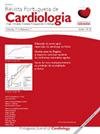世界心脏联盟胆固醇路线图:葡萄牙案例。
IF 1.6
4区 医学
Q3 CARDIAC & CARDIOVASCULAR SYSTEMS
引用次数: 0
摘要
动脉粥样硬化性心血管疾病(ASCVD)仍然是导致过早死亡和残疾的主要原因;有效的心血管(CV)风险预防至关重要。应世界心脏联盟(WHF)的邀请,葡萄牙心脏病学会(SPC)的一组专家探讨了国家层面的胆固醇负担问题,并讨论了葡萄牙胆固醇路线图中可能包含的战略。文献综述显示,葡萄牙的胆固醇负担很重,尤其是心血管疾病风险最高的人群的胆固醇未得到控制。为了清楚地了解葡萄牙的心血管疾病风险和胆固醇负担,我们制作了一张信息图表--记分卡,以纳入世界健康论坛的资料库,这也将有助于健康政策的宣传:专家讨论和预防策略建议遵循了世界健康论坛文件的五大支柱:提高认识;以人群为基础的心血管疾病风险和胆固醇方法;风险评估/人群筛查;系统方法;胆固醇和 ASCVD 结果监测。所有与会专家都对这些策略进行了讨论,目的是制定一份全国胆固醇路线图,用于宣传和指导冠心病预防工作:将所有利益相关者纳入一项多学科的国家计划;制定一项结构化的活动计划,以提高民众的认识;提高持续性冠心病健康教育的质量;加强不同卫生专业人员和非卫生专业人员之间的互动;增加将患者转诊至心脏康复中心的次数;对普通人群,尤其是高危人群进行胆固醇水平筛查;促进患者的自我保健,与患者协会合作;利用特定的社交网络广泛传播信息;建立全国胆固醇水平数据库,对心血管事件进行系统登记;根据结果评估重新制定战略;建立更多患者协会并让其参与其中--倒转金字塔顺序。总之:在葡萄牙,慢性阻塞性心血管疾病和胆固醇负担仍然是一个严重的全球性问题,需要多个利益相关方参与预防。葡萄牙胆固醇路线图可提供一些解决方案,帮助紧急缓解这一问题。以人群为基础,提高对胆固醇和 ASCVD 结果的认识、CV 风险评估和监测,是实现这一转变的关键因素。显然,需要呼吁采取行动,以应对高胆固醇血症和 ASCVD 负担。本文章由计算机程序翻译,如有差异,请以英文原文为准。
World Heart Federation Cholesterol Roadmap: The Portuguese case
Atherosclerotic cardiovascular disease (ASCVD) remains the major cause of premature death and disability; effective cardiovascular (CV) risk prevention is fundamental. The World Heart Federation (WHF) Cholesterol Roadmap provides a framework for national policy development and aims to achieve ASCVD prevention.
At the invitation of the WHF, a group of experts from the Portuguese Society of Cardiology (SPC), addressed the cholesterol burden at nationally and discussed possible strategies to include in a Portuguese cholesterol roadmap. The literature review showed that the cholesterol burden in Portugal is high and especially uncontrolled in those with the highest CV risk. An infographic scorecard was built to include in the WHF collection, for a clear idea about CV risk and cholesterol burden in Portugal, which would also be useful for health policy advocacy.
The expert discussion and preventive strategies proposal followed the five pillars of the WHF document: awareness improvement; population-based approaches for CV risk and cholesterol; risk assessment/population screening; system-level approaches; surveillance of cholesterol and ASCVD outcomes. These strategies were debated by all the expert participants, with the goal of creating a national cholesterol roadmap to be used for advocacy and as a guide for CV prevention.
Several key recommendations were outlined: include all stakeholders in a multidisciplinary national program; create a structured activities plan to increase awareness in the population; improve the quality of continuous CV health education; increase the interaction between different health professionals and non-health professionals; increment the referral of patients to cardiac rehabilitation; screen cholesterol levels in the general population, especially high-risk groups; promote patient self-care, engage with patients’ associations; use specific social networks to spread information widely; create a national database of cholesterol levels with systematic registry of CV events; redefine strategies based on the evaluation of results; create and involve more patients’ associations – invert the pyramid order.
In conclusion, ASCVD and the cholesterol burden remain a strong global issue in Portugal, requiring the involvement of multiple stakeholders in prevention. The Portuguese cholesterol roadmap can provide some solutions to help urgently mitigate the problem. Population-based approaches to improve awareness and CV risk assessment and surveillance of cholesterol and ASCVD outcomes are key factors in this change. A call to action is clearly needed to fight hypercholesterolemia and ASCVD burden.
求助全文
通过发布文献求助,成功后即可免费获取论文全文。
去求助
来源期刊

Revista Portuguesa De Cardiologia
CARDIAC & CARDIOVASCULAR SYSTEMS-
CiteScore
2.70
自引率
22.20%
发文量
205
审稿时长
54 days
期刊介绍:
The Portuguese Journal of Cardiology, the official journal of the Portuguese Society of Cardiology, was founded in 1982 with the aim of keeping Portuguese cardiologists informed through the publication of scientific articles on areas such as arrhythmology and electrophysiology, cardiovascular surgery, intensive care, coronary artery disease, cardiovascular imaging, hypertension, heart failure and cardiovascular prevention. The Journal is a monthly publication with high standards of quality in terms of scientific content and production. Since 1999 it has been published in English as well as Portuguese, which has widened its readership abroad. It is distributed to all members of the Portuguese Societies of Cardiology, Internal Medicine, Pneumology and Cardiothoracic Surgery, as well as to leading non-Portuguese cardiologists and to virtually all cardiology societies worldwide. It has been referred in Medline since 1987.
 求助内容:
求助内容: 应助结果提醒方式:
应助结果提醒方式:


